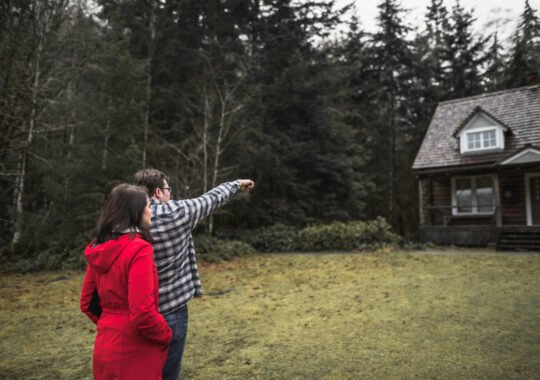Becoming a landlord for the first time is exciting. You’ve worked hard to own property, and now you get to use it as an investment. At the same time, it can feel overwhelming. You’re not only collecting rent but also managing people, handling repairs, and staying compliant with the law. Property management is a skill, and like any skill, it gets easier with practice.
This guide walks you through the basics. It will show you how to find good tenants, protect your property, and create a system that makes renting less stressful. You don’t need years of experience to get started. With some planning and consistency, you can learn how to manage your property the right way.
1. Screening Tenants the Right Way
Finding the right tenants is the most important step in property management. A reliable tenant pays rent on time, follows the lease, and takes care of your property. A bad tenant can do the opposite, leaving you with missed payments, damage, and legal headaches.
Start by asking for a complete rental application. Review income, employment details, rental history, and references. Always verify this information instead of taking it at face value. Pay stubs, W-2s, or direct confirmation from an employer can help. Speaking with past landlords can also give you insight into how the applicant treated their last rental.
Be mindful of red flags on rental application forms, as ignoring them could create bigger problems later. Missing information, unverifiable income, or inconsistencies between the application and the credit report should make you pause. Catching these issues upfront saves you stress and money down the road.
Using a tenant screening service can also help. Many platforms provide background checks, credit reports, and eviction history. These tools give you a fuller picture and make your decision-making process easier.
2. Setting Clear Lease Agreements
Once you find the right tenant, the next step is putting everything in writing. A lease is more than a piece of paper. It sets the expectations for both you and the tenant.
Your lease should outline key details like rent amount, due dates, grace periods, and late fees. It should also cover the length of the lease, rules for property use, and how security deposits are handled. Make sure to include information about maintenance responsibilities, such as who takes care of the lawn or minor repairs.
The goal is clarity. When both sides know what to expect, there are fewer chances for conflict. A clear lease agreement gives you something to point back to if a disagreement comes up.
3. Staying on Top of Property Maintenance
Taking care of your property keeps it valuable and keeps your tenants satisfied. Tenants are more likely to stay longer if they know their home is well-maintained. This also prevents small problems from becoming big, expensive ones.
Set up a routine for inspections and maintenance. For example, check smoke detectors twice a year, schedule seasonal HVAC service, and inspect the roof after major storms. Encourage tenants to report problems early. If a tenant calls about a small leak, fix it quickly before it causes water damage.
Building a list of reliable contractors will also make your life easier. Plumbers, electricians, and handymen who you can trust will save time and reduce stress when issues pop up.
4. Understanding Legal Responsibilities
As a landlord, you have legal responsibilities. Some of these depend on your state or city, but there are general rules every landlord should know.
Fair housing laws prevent discrimination based on race, religion, gender, family status, disability, or national origin. Make sure your tenant screening and advertising follow these rules. Security deposits are another area where laws matter. Many states regulate how much you can collect, how you must store it, and how quickly you must return it when the lease ends.
You also need to respect tenant privacy. Even though you own the property, you cannot walk in whenever you want. Most states require notice before entering, often 24 hours. Knowing these rules keeps you in compliance and helps you avoid legal disputes.
5. Managing Finances Effectively
Money management is another big part of property ownership. Rent may cover the mortgage, but there are other costs you need to plan for. Property taxes, insurance, repairs, and vacancies all affect your bottom line.
A good practice is to set aside a portion of rent each month for maintenance and unexpected expenses. Many landlords keep a separate bank account just for property income and costs. This makes tracking easier and prevents mixing personal spending with rental finances.
If you own more than one property, consider using accounting software. Some platforms are designed for landlords and can track rent, expenses, and even generate reports for tax time.
6. Communication and Tenant Relations
How you communicate with tenants makes a big difference in your experience as a landlord. Being approachable and responsive helps build trust. Tenants who feel heard are more likely to respect the property and follow the lease.
Respond to questions and maintenance requests quickly. Even if you can’t fix an issue right away, let the tenant know you’ve received their request and when you plan to take action. Simple updates go a long way in showing tenants you care.
It’s also helpful to set communication boundaries. Decide whether tenants should contact you by phone, email, or a property management app. Having one system avoids confusion and makes record-keeping easier.
Managing a rental property takes time, effort, and consistency. But it doesn’t have to feel overwhelming. By focusing on the basics, you can build a system that works for you and keeps tenants happy.
Start with solid tenant screening to protect your property. Create clear leases that outline responsibilities. Stay proactive with maintenance so small issues don’t become big ones. Learn the laws that apply to you and manage your finances with care. Communicate openly with tenants and, if needed, bring in professional help.
With these basics in place, you’ll be better prepared to handle the challenges of being a landlord. Over time, managing your property will feel less like trial and error and more like a steady routine.





